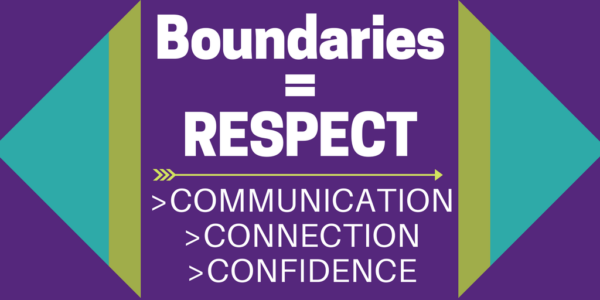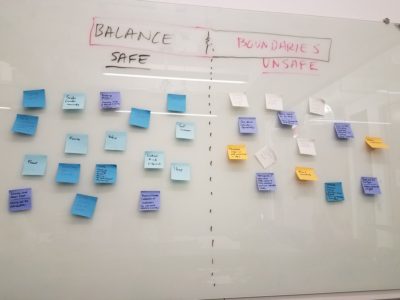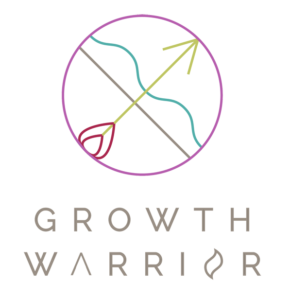We recently led a Balance & Boundaries workshop that was a powerful experience in learning to connect with what matters most and speaking one’s truth. The biggest lesson is that creating balance and having healthy interpersonal relationships both ultimately depend upon R*E*S*P*E*C*T. Boundaries = Respect. (Cue Aretha Franklin). It all starts with communication, connection and confidence. Here are some additional thoughts on how to create better boundaries for yourself.
I was struck by the importance of leadership and communications skills as the key determinants of success. Of course, understanding the business fundamentals and numbers is important, but not enough on their own. The most successful founders will be highly driven, have a track record of success and be passionate about their vision, in addition to being able to effectively convey what they hope to achieve. Want to learn how to cultivate your leadership and communication skills, schedule a complimentary Growth Strategy call here.
Boundaries provide clarity they are guidelines for people to know what is and is not acceptable. We need to be clear when setting a boundary, because otherwise people will test us. Beware of giving an inch, because someone may take a mile. We need to learn how to hold firmly to what matters most to us. In many case, this ties directly into our values what we truly care about. Our values can help us to evaluate options, determine our most important priorities and then take steps to make sure our life reflects what we believe. Sadly, we may not realize what we care about most until someone pushes us a little too far then it becomes clearer what is most sacrosanct.
When we are aligned with our vision, values and purpose, it can become easier to know when something feels right and when something feels wrong. Following our inner knowing and also listening to our bodies (our gut and intuition), can guide us to say yes or no to the right things for us. Wouldn’t you prefer to focus on what is most important to you, rather than working on someone else’s agenda? Following other people’s priorities, particularly when we don’t believe in them, can be frustrating and unsatisfying. This reveals an important challenge of leadership getting others aligned with our vision is best accomplished when it feels consensual, rather than forced.


We all have a right to our feelings and knowing what we need. This is echoed in Maslow’s Hierarchy of Needs which starts at the base level with physiology (meeting our survival needs around eating and staying warm), followed by a higher level need for safety. As we feel safer, we will then desire greater connection and a sense of belonging, which evolves at a higher level to focus on our self esteem and eventual self-actualization. As we continue to grow, we need to understand what our heart’s desire and feel able to ask for it.
One of the most powerful areas that we explored in the workshop was the vulnerability around connecting with others and standing up for ourselves. When we are in a place of stress, overwhelm or even anxiety, it can be hard to focus on the needs of others. We experienced a powerful example where empathy understanding other people’s perspectives can transform our interactions.
Another important lesson about vulnerability is the difficulty in sharing how we feel and “owning our truth” with others. However it is tangible what a difference honesty and genuine authenticity make in facilitating greater connection. Being vulnerable allows others to see us and really sense who we are from a place of understanding they relate and it creates resonance when they feel the similarity in their own experience. When we cover up how we feel or act out in ways we may not be consciously aware of, we don’t often have the type of impact we ultimately want. Being indirect may seem sensible because we don’t want to hurt someone else’s feelings. In actuality, side-stepping challenging issues causes us to deny what we feel and avoid dealing with things that are important for us. Eventually unaddressed matters build up to the point where they can become explosive. When we assume that other’s will know how we feel or get annoyed when they can’t read our minds, we are creating a recipe for misunderstanding. Inadvertently or unconsciously projecting our “stuff” (unresolved emotional issues) onto other people can damage our relationships by pushing other people away.
When we react to others with defensiveness, this often comes from a legitimate desire to protect ourselves. Yet by pushing other people away we achieve the goal of feeling safe in the moment, but ultimately create distance with others by putting up barriers. The more we can be honest and genuine, which requires true vulnerability to share our real experience, the better opportunity we have to be seen, heard and acknowledged.
Being vulnerable is actually more powerful than we realize. By standing in our truth, it allows others to see us and stand in theirs.



